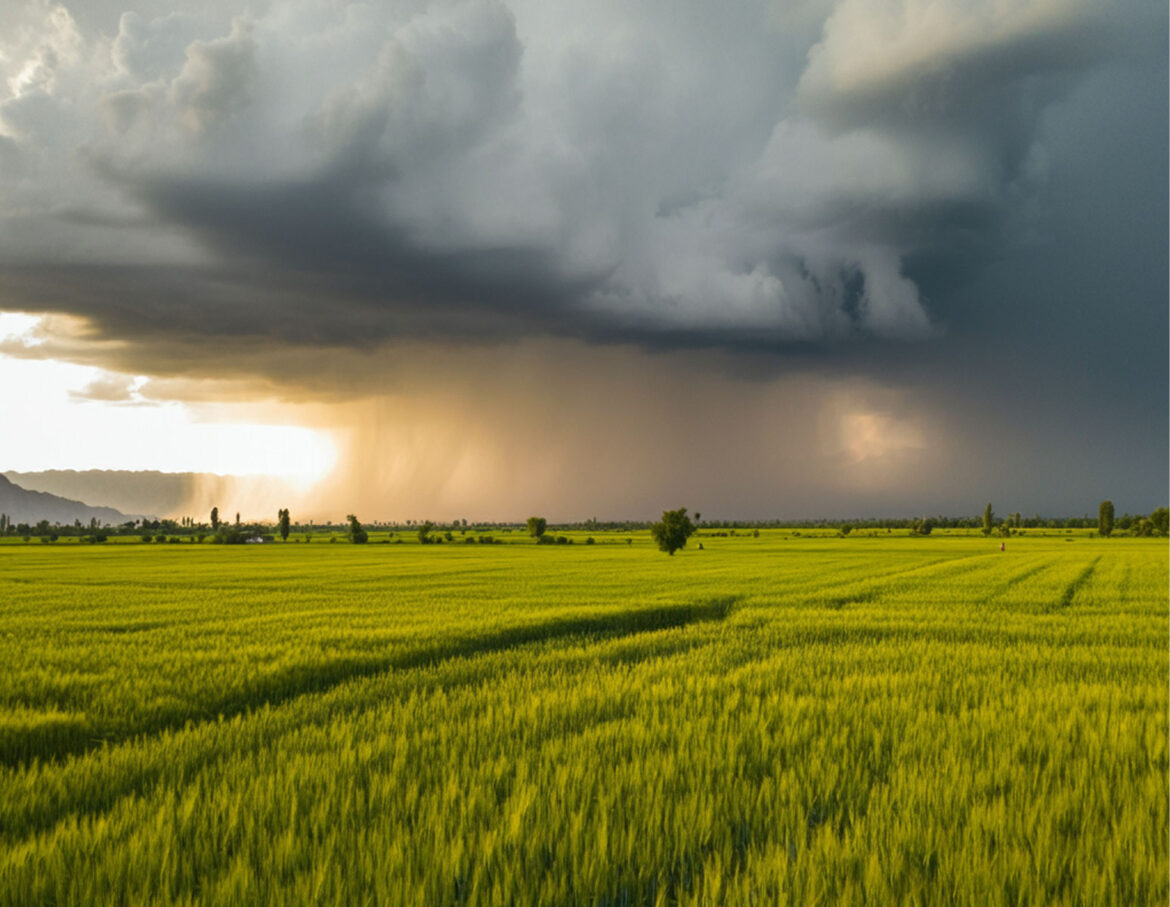Scientists at the Agricultural Research Institute Tarnab (ARIT) in Peshawar have made a significant breakthrough in wheat farming by developing three new varieties of wheat. These varieties are designed to offer enhanced climate resilience and a potential threefold increase in per-acre yield, providing a much-needed solution for farmers struggling with the challenges of climate change.

The new wheat varieties are a part of sustainable agriculture practices aimed at ensuring food security for both the present and future generations, without compromising the ability of future crops to thrive. Along with improved climate resilience, the researchers have also introduced a wheat seed variant suitable for rain-fed farming, a critical development for the rain-dependent regions of Khyber Pakhtunkhwa.

A report shared with Dawn.com from ARIT highlighted the growing issue of low wheat production in the province. Khyber Pakhtunkhwa currently produces only 1.4 million tonnes of wheat, falling far short of its annual consumption of 5 million tonnes. Furthermore, farming in the province is heavily reliant on rainfall, with 51% of the land dependent on natural precipitation.
Akhtar Ali, a senior agricultural scientist at ARIT, explained to Dawn.com that climate change had caused severe disruptions in farming practices over the past five years. “Changes and delays in rain patterns, including shifts in the intervals between seasons, have created new challenges for the agriculture sector,” he noted. He added that the yield from traditional wheat varieties had sharply decreased due to these unpredictable weather changes, prompting the institute’s ongoing research into new, climate-adapted seeds.
After extensive experimentation, ARIT has introduced two new types of seeds: one designed for canal-irrigated lands and the other for rain-fed areas. Ali revealed that the seeds developed for canal-irrigated lands have the potential to produce three times the yield per acre compared to current varieties.
Altaf Khan, another researcher at ARIT, highlighted the challenges of achieving such significant increases in production. He emphasized that climate change and the persistence of outdated farming methods were major obstacles to progress. “Farmers must adopt scientific farming methods for these new seeds to achieve their full potential,” Khan said.
The institute’s report further noted that wheat farming in Khyber Pakhtunkhwa has seen little growth over the past nine years. From 2015 to 2016, wheat cultivation covered just 0.753 million hectares, increasing slightly to 0.770 million hectares by 2022-2023. Meanwhile, production remained stagnant, ranging between 1.247 and 1.47 million tonnes annually.
Farmers in the region have voiced concerns about the stagnation in production. Marwan Khan, a farmer from Charsadda district, told Dawn.com that last year’s wheat crop barely covered the rising costs of production. “In 2023, I received over Rs6,000 for 50 kg of wheat, but with the fluctuating market prices, I had to reduce my wheat cultivation area by 20%,” he said.
Ashfaq Ahmed, another farmer, expressed frustration with traditional farming practices. “We need to use more fertilizers and pesticides today than we did 20 years ago, and prices for these inputs have quadrupled,” he said, pointing to the increasing financial strain on farmers.
Despite the challenges, the new research from ARIT offers a glimmer of hope. Experts stress the importance of government support in providing cost-effective seeds, fertilizers, and pesticides to farmers. Additionally, raising awareness about the impact of climate change on agriculture will help farmers adapt to the evolving landscape, ensuring a more sustainable future for wheat production in Khyber Pakhtunkhwa.



